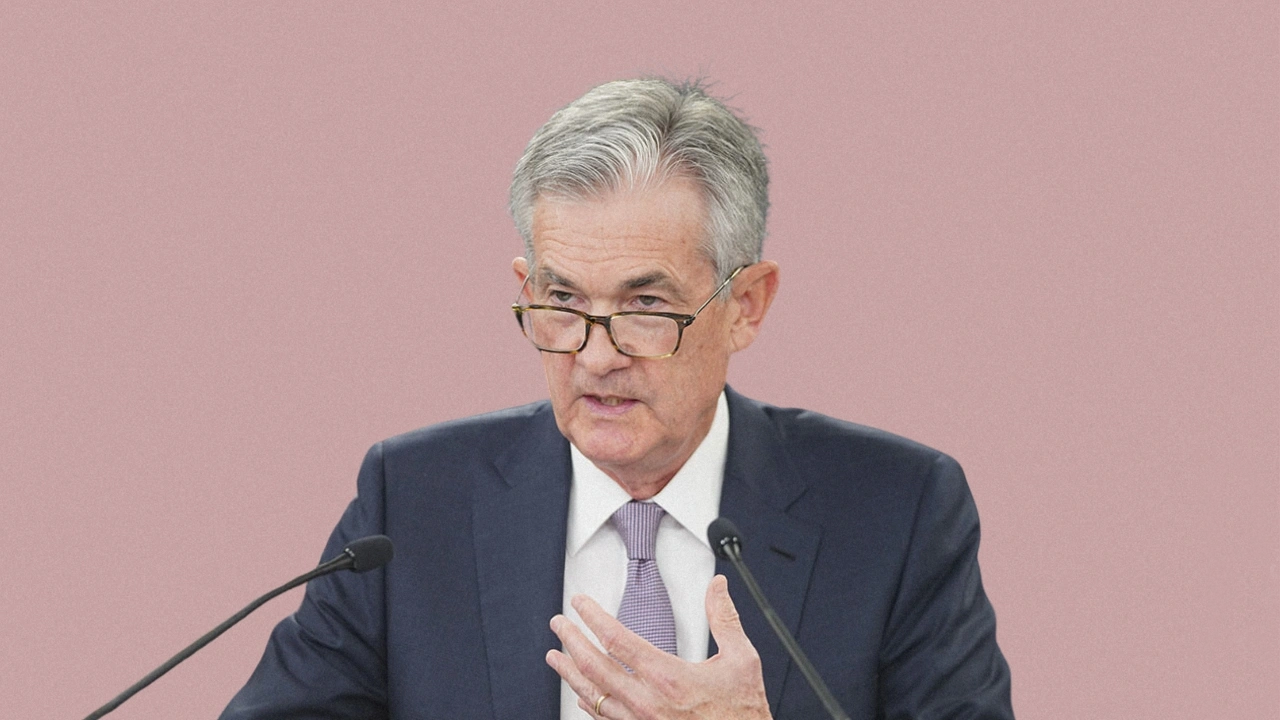
According to the latest Gallup poll, only 37% of Americans trust Federal Reserve Chairman Jerome Powell to make the right decisions for the economy, a figure close to historical lows, reflecting a significant decline in public confidence in the Fed's economic policies. Powell is currently in his second term, and this trust data represents the second-lowest performance during his tenure, only higher than the level during Janet Yellen's chairmanship in 2014. Looking back to 2020, Powell enjoyed a public trust level of 58%, but that support has drastically decreased, indicating public skepticism about the Fed's ability to address economic challenges.
Jackson Hole Conference: Powell Hints at Upcoming Rate Cuts
At the recent Jackson Hole Economic Policy Symposium, Powell delivered his final keynote address as Fed Chairman. At this time, the U.S. labor market is slowing down, which typically prompts the Fed to lower interest rates to stimulate the economy. However, inflation remains above target levels, and the Fed must be cautious to avoid further increasing prices. In his speech, Powell stated that monetary policy may need to be "adjusted," which in Fed terminology usually means that rate cuts are imminent, potentially starting next month and possibly continuing in the following two meetings.
This statement surprised the market. Previously, the market expected Powell to maintain his usual cautious rhetoric, but his clear hints triggered a strong market reaction: the dollar fell, bond prices soared, and the stock market rebounded after a week of sluggishness. However, this decision also comes with risks. Analysts at Bank of America warned that if the Fed cuts rates too early before the labor market recovers, it could lead to policy missteps, especially with inflation still above target. The August employment report will be released in early September, and if it shows unexpectedly strong labor market data, the Fed's rate cut decision may seem premature.
Trump Pressures: Fed Independence Under Challenge
Shortly after Powell's speech, President Trump publicly targeted Fed board member Lisa Cook, claiming she should resign over issues related to her mortgage documents, or he would fire her. Trump even made this statement while wearing a red hat that read "Trump is always right." Cook responded that she would not be "bullied," but her position appears vulnerable in the current political climate. Trump's criticism of Powell has been ongoing, repeatedly calling him an "idiot" and a "fool," accusing him of failing to cut rates significantly earlier.
Trump's dissatisfaction is not only directed at Powell personally but also involves gradually undermining the Fed's independence by placing loyalists in key positions. He has appointed ally Stephen Miran to a temporary position at the Fed, who has argued that the president should have the authority to dismiss central bank officials at will. Additionally, Trump replaced the head of the Bureau of Labor Statistics with one of his supporters. These actions indicate that Trump is attempting to bring the Fed under his political influence.
The Future of the Fed: A Tug-of-War Between Independence and Political Pressure
The Fed is theoretically supposed to be independent of political interference, focusing on data-driven monetary policy. However, as Trump's influence grows, the Fed's independence is facing severe challenges. The market has begun to worry, as the bond market shows signs of long-term Treasury performance lagging behind short-term Treasuries, indicating that investors believe the Fed may maintain artificially low rates due to political pressure rather than economic necessity. Low interest rate policies could facilitate large-scale spending by the Trump administration, avoiding tax increases and catering to political demands.
In his speech, Powell reiterated his commitment to fighting inflation at all costs while closely monitoring rapid changes in the labor market, showcasing the Fed's consistent cautious balancing style. However, as Powell's term nears its end, the next chairman may be more inclined to follow political directives rather than adhere to data-driven decision-making. In the future, if the new chairman attempts to express dissent, it may be interpreted by the market as a signal of internal discord or a loss of control by the chairman. This will complicate the interpretation of the Fed's policy intentions and further increase market uncertainty.
Currently, only 37% of Americans trust Powell's economic decisions, marking a historical low. Meanwhile, Powell's hint at upcoming rate cuts during the Jackson Hole conference has shaken the market but also carries the risk of policy missteps. Trump's ongoing pressure on the Fed and his placement of loyalists threaten the Fed's independence. In the coming year, the Fed may face significant changes, with its policy direction potentially driven more by political considerations than economic data, leading to greater uncertainty for the U.S. economy and global markets.
免责声明:本文章仅代表作者个人观点,不代表本平台的立场和观点。本文章仅供信息分享,不构成对任何人的任何投资建议。用户与作者之间的任何争议,与本平台无关。如网页中刊载的文章或图片涉及侵权,请提供相关的权利证明和身份证明发送邮件到support@aicoin.com,本平台相关工作人员将会进行核查。




